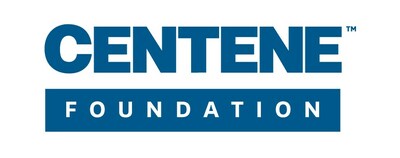Meridian in Michigan and the Centene Foundation Announce $1.1 Million Grant to Wayne Mobile Health Unit
- None.
- None.
Insights
Initiatives like the partnership between Meridian in Michigan and the Wayne Mobile Health Unit (WMHU) represent a strategic investment in public health infrastructure that addresses critical social determinants of health (SDoH). By targeting maternal and infant health disparities, specifically in underserved populations, the program aims to improve health outcomes which, in the long-term, could lead to reduced healthcare costs and potentially lower insurance payouts for Centene Corporation. This proactive approach aligns with the broader industry trend towards value-based care, where the focus is on preventative measures and overall well-being rather than just treatment of illness.
In the context of the stock market, investors may view this as an indicator of Centene's commitment to corporate social responsibility and long-term sustainability. While the direct financial impact of such programs may not be immediately evident on the company's balance sheet, they can enhance the company's reputation and strengthen its relationships with local communities and government entities, potentially leading to favorable regulatory conditions and new business opportunities.
The allocation of a $1.1 million grant by the Centene Foundation to the WMHU can be seen as a strategic move to mitigate risk and potentially reduce future costs associated with high-risk pregnancies. High maternal mortality rates and poor infant health outcomes can result in increased medical expenses, legal risks and higher insurance premiums. By improving access to prenatal and postnatal care, the initiative may lead to a decrease in these adverse outcomes, which can be financially beneficial for Centene in the long run.
From a financial analysis standpoint, the initiative also highlights Centene's approach to innovative billing practices, such as the creation of novel billing codes. This could streamline the reimbursement process for preventative care and may open up new revenue streams. The emphasis on geospatial analysis to target interventions is also a noteworthy use of data analytics to enhance service delivery, which could be an attractive point for investors interested in companies leveraging technology to improve efficiency.
The partnership's focus on addressing racial disparities in maternal health outcomes is a reflection of the growing emphasis on health equity in policy discussions. The use of geospatial analysis to identify health equity zones suggests a data-driven approach to targeting interventions. This can be seen as a model for other healthcare entities looking to address systemic biases and improve population health outcomes.
By collaborating with academic institutions like Wayne State University and leveraging community health workers, the program is engaging in a multi-sectoral approach that is increasingly viewed as essential for addressing complex health issues. Such collaborations can also amplify the impact of health policies and potentially influence future legislation that supports similar initiatives, which may have positive implications for Centene's operations and policy environment.
The
"Meridian is pleased to collaborate with the Wayne Mobile Health Unit and our other partners to provide targeted services in an efficient way to urban and rural communities across
In
"The Wayne Mobile Health Unit is incredibly grateful to the Centene Foundation for their substantial financial commitment," said Dr. Phillip Levy, Associate Vice President for Translational Science at Wayne State University and Director of the Wayne Mobile Health Unit. "This support will help sustain our existing outreach efforts while also allowing our expansion into the much-needed realm of maternal health. I look forward to working with Meridian and the Detroit Medical Center on this critically important endeavor and know that together, we will positively impact the communities we serve."
In addition to connecting WMHU patients with DMC follow-up care, the program will provide routine social determinant of health (SDoH) screenings with wraparound community health worker services to guide women through the process and ensure continuity of care. In its first year, the pilot aims to increase attendance at pre- and postnatal appointments by 10
The maternal health pilot builds on the WMHU program's success during the pandemic. Funds from Meridian and the Centene Foundation will enable WMHU to hire staff to deliver care and continue to their partnership of providing no cost routine health screenings in communities. Additionally, Meridian and WMHU will partner to deploy mobile units to reach Meridian clients who have not engaged in routine preventative care and will work together to create novel billing codes to enable direct and local access to prevention screening and care management.
About Meridian
Meridian in Michigan provides government-sponsored managed care services to families, children, seniors, and individuals with complex medical needs primarily through Medicaid (Meridian), Medicare Advantage and Medicare Prescription Drug Plans (Wellcare), Medicare-Medicaid Plans (MeridianComplete), and the Health Insurance Marketplace (Ambetter from Meridian). Meridian is a wholly owned subsidiary of Centene Corporation, a leading healthcare enterprise committed to helping people live healthier lives.
About the Centene Foundation
The Centene Foundation (the "Foundation"), a private nonprofit focused on investing in economically challenged communities, is the philanthropic arm of Centene Corporation ("Centene"). The Foundation supports projects and initiatives strategically aligned with Centene's purpose-driven culture and enhances the work Centene is doing to remove the barriers to wellness underserved and low-income populations face. The Foundation is committed to addressing social determinants of health and improving health equity in three distinct areas of focus: healthcare access, social services, and education.
About Wayne Health
Wayne Health is a non-profit, multi-specialty academic group practice that offers a full spectrum of care, from birth to end-of-life, for individuals and families. In response to the COVID-19 pandemic, the Wayne Mobile Health Unit (WMHU) was established in partnership with Wayne State University. The mission of the WMHU is to provide access to high-quality, portable patient-centric preventative health care to the underserved and underinsured in
![]() View original content to download multimedia:https://www.prnewswire.com/news-releases/meridian-in-michigan-and-the-centene-foundation-announce-1-1-million-grant-to-wayne-mobile-health-unit-302063220.html
View original content to download multimedia:https://www.prnewswire.com/news-releases/meridian-in-michigan-and-the-centene-foundation-announce-1-1-million-grant-to-wayne-mobile-health-unit-302063220.html
SOURCE Meridian of










